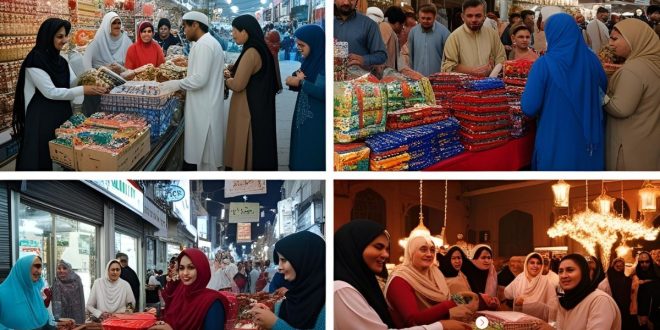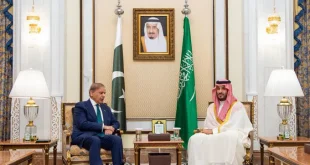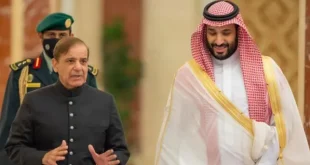How Ramadan & Eid Shopping impact on economy. As Ramadan draws near the end, Pakistan becomes the scene of an overwhelming shopping; the streets of the city’s markets are crowded with the expectations of the consumers. From the bazaars filled with life to the luxurious malls, millions of people are spending money on new fashion, accessories, and food, but is the economic flow beneficial to Pakistan or is inflation a difficult thing for the consumers’ purses?
Ramadan & Eid Shopping: Unkindness Of Inflation
The shopping malls and markets are still crowded even though there is a record-high inflation. During Ramadan, the sales figures of retailers show a 30-40% increase in comparison with the average months. The lively shopping centers such as the Tariq Road in Karachi, the Anarkali in Lahore, and the Centaurus Mall in Islamabad have the largest number ever. People lavish money on new clothes and suits for Eid, jewelry, and presents for Eid; thus, they are injecting billions into the economy.
Sale Bloom on Ramadan & Eid Shopping
The food and beverage sales also go up greatly because of the high demand for the essential Iftar and Suhoor. Bakeries, sweet shops, and restaurants see a big bump in their income, which also helps in making the economy flourish.
Inflation Is a Major Force to Make Middle-Class People Decide to Spend Less on Ramadan & Eid Shopping
On the other hand, this year’s shopping spree has left an astonishing number of people with empty wallets. For instance, 30% of them face high inflation of about 30%. As a result, a dramatic cut in purchasing power took place. Many families have to make the tough choice of buying only essentials instead of going luxury shopping. In the meantime, the elite is still involved in their reckless expenditure while the middle and lower income groups bear the burden of not having even basic Eid preparatory costs.
A person who went shopping in Karachi’s Saddar Market shared, “Last year, I bought three dresses for my kids. This year, I can hardly afford one.”
Government Urged to Address Economic Disparities
It has to be realized that the country’s economy has not been well for the past few years. The country’s budget deficit is far from being eliminated even though Eid purchases generate profit for traders and businesses for a short term because the main issue of financial problems is not tackled. Authorities call for the imposition of price controls, the expansion of subsidies as well as the stricter regulation of imports to remove the financial hardship from the population.
While Pakistan is in the process of celebrating Eid, we cannot ignore the fact that the wealthy in society are getting ahead, whereas the others are just pulling through.
 Save Our Pak
Save Our Pak




